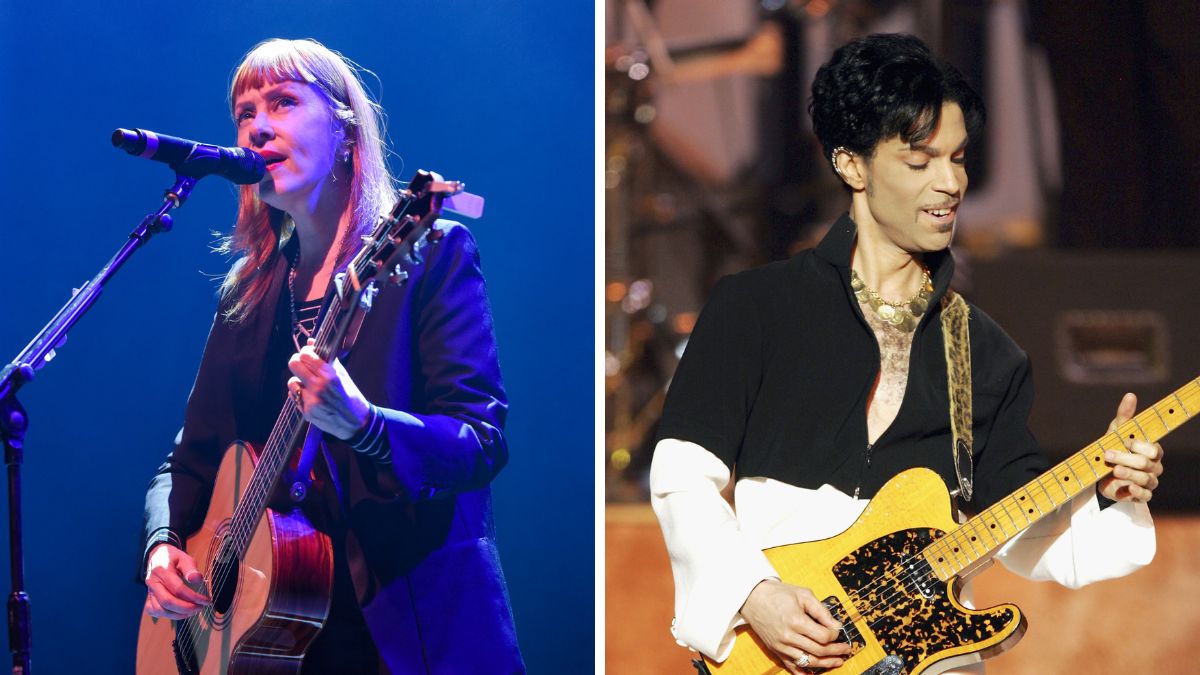
Esteemed singer-songwriter Suzanne Vega's 1987 single Luka may have been an unlikely hit due to the sensitive topic it addresses: child abuse. However, it remains her highest-charting single in the United States – and found a perhaps unexpected fan in the High Priest of Pop.
Upon Prince's death in 2016, Vega shared a post on social media that included a handwritten note from him, which read: “Dearest Suzanne, Luka is the most compelling piece of music I’ve heard in a long time. There are no words 2 tell u all the things I feel when I hear it. I thank God 4 u. – Prince.” Vega had held onto the note for almost three decades before sharing it publicly to pay tribute to the artist.
As much a fan as they were of each other's repertoire, Vega and Prince never managed to meet. “But I’ve always felt that connection because of the letter and when I sang at the Grammys, he jumped to his feet after I sang the song and I knew he loved it,” she told Billboard in 2016. “I’ve seen him perform many times and loved him.”
I found my letter from #Prince pic.twitter.com/m57p9UQprKApril 25, 2016
“I share a lot of things with my fans on Twitter and Facebook. I shared some texts I’d had with Lou Reed, as an example, so I just thought this could be something they might like, especially when I feel that we’re all grieving together. Somehow it reached many more people than that, so I’ve been appreciative of all that outpouring and love for Prince.”
Luka went on to earn Vega multiple nominations at the 1988 Grammy Awards, including Record of the Year, Song of the Year, and Best Female Pop Vocal Performance. However, she recently revealed that at its inception, the song wasn’t well received.
“It's because they [the audience] didn't know what I was talking about, and then when they did realize what I was talking about, I think it made them sad and it made some people uncomfortable,” Vega reveals on the Rock & Roll High School Podcast.
It was so far beyond her comprehension that the song could actually become a hit, that it wasn't until her then-manager Ronald K. Fierstein – who also executive produced her 1985 self-titled debut and several subsequent projects – recognized its potential that Vega, very tentatively, began to believe in its mainstream appeal.
“It was at a sound check. And he said, ‘I want to talk to you about that song. Is that what I think it's about?’ And I'm like, ‘What do you think it's about?’ And he said, ‘I think it's about the issue of child abuse.’”
She continues, “I said, ‘Yeah.’ And he told me point blank, he thought it could be a hit. And I was so skeptical. I thought, ‘Yeah.’ He made a compelling argument in the end, I just said, ‘Okay, fine, knock yourself out as long as I'm not going to change the lyrics, and I'm not going to change the way I sing.’”
In a career-spanning Guitarist interview back in 2022, Vega reflected on the enduring impact of Luka, her compulsion to tackle difficult subject matter in her songwriting, and her love of acoustic guitars.







